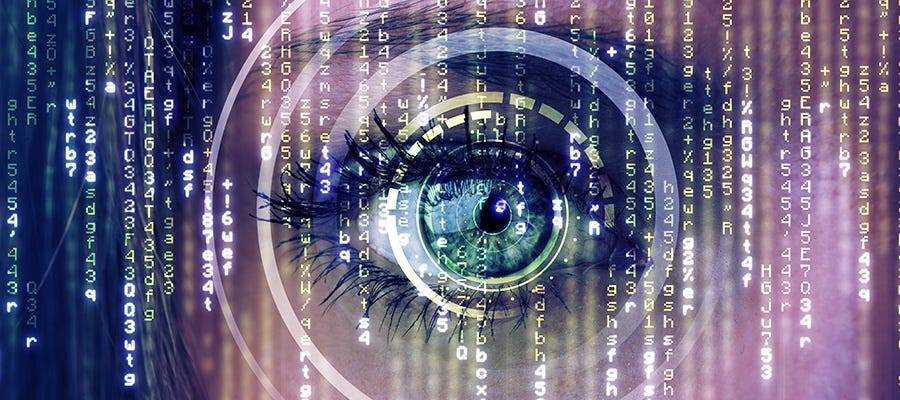Relationships: They Are Us
There comes a point, usually after the reality sets in that bills and working to pay them define far more of what you do than you ever thought they would, when life no longer seems neat and tidy. Within that grind, relationship conflict, whether romantic, business, or social, often brings these moments into further focus because our relationships are us. A healthy skepticism emerges after seeing far too many examples of people making decisions to continue an association that has long since become destructive. This continuation is not because people are unaware of their actions but because their decisions are made within the current relational matrix, seen or experienced as a form of billiards where one selects the primary ball as self to interact specifically and isolatedly with others. Therein lies the problem. People believe it’s an act of one ball, in this case, the “I” making a decision to affect another ball, the “relationship,” and ignore the existing complex environment in which the decisions are made.
The negative quality of making decisions “for the sake of the relationship, family, etc.” is a decision-making model that places all other considerations below that of a particular situation. This model is often cited, usually unconsciously, whenever someone notes that they “did it to save the relationship, keep the job, or for the family.” or “I’ve put so much work into it to give up now.” Just what “it” is is as varied as there are forms of relationships. Giving up personal goals, opportunities, hobbies, or anything that feels important is often what ends up being placed on hold to maintain the status quo.
This potentially negative situation is the root cause of many people’s willingness to continue in unhealthy connections. However, focusing on this decision model is not helpful in the attempt to change that influence because it isn’t real. There is no “I” deciding to engage in a relationship; there has always been a relationship.
Who is "I"?
Try for a moment to think of yourself as unconnected to anyone or anything. When this inevitably fails, try to imagine an aspect of your self that isn’t immediately connected to a situation, experience, or person. Note, even if you decide to consider your self in empty space, you’re still defining your existence in light of that space. Gautama, the first Buddha, noted that the self, while not precisely non-existent, was not the monolithic thing Western philosophers were so enamored of. It was, in fact, merely one stream in a multitude of narratives. The truth of this insight can be found in any of those moments where upon reflection it is noted “that wasn’t me doing that” or “I can’t believe I would do that” or “where did that behavior come from?” We’ve all had those times and usually brush them off as aberrations from the central story we have ourselves. We rationalize such behavior away in light of extreme circumstances, lack of sleep, or in some cases even demonic possession.
Unless we wish to delve into bodily possession, which even at face value seems more self-serving than a real explanation, the hard truth is that in those situations, there is nobody but us participating in the behavior. From this understanding, we can only come to the conclusion that there exists any number of potential behaviors that, while not common, are still capable of being fulfilled with these bodies. We, with childlike innocence, think we control more than we do.
Relational Matrix
Relationships in any form are the means by which these varying narratives, both the ones that are the “true me” and the aberrations, are instantiated. Daniel Siegel, in his work on interpersonal neurobiology, posits a triune understanding of the human person: the brain, the mind, and relationships. Neither of the three are subservient to the others. The triangular connection formed neither indicates a tempestuous union like Freud’s theory of the self nor does it point to a situation where one can be studied without referring to the others. The mind here is not a disembodied thing but a descriptive term referring to the energy and information flow that is at the heart of all connections. Relationships are the process of energy and information flow whereby two or more physically instantiated beings connect in a reciprocal matrix. Change is inevitable, as is a relational dynamic at the heart of who we are as individuals. The centralizing concept of “I” is here no longer an existent thing in its own right but merely a pointer, a lexical device noting the presence of a particular narrative taking center stage.
We act and wonder at times where our behavior comes from, the arm-chair inner psychologist ruefully reminding us of how Mom or Dad did the exact same thing. We see someone we care about or work with engage in unusual, unacceptable behavior and reconcile the anxiety by dwelling within the connection, in other words, “for the sake of....” Relationships, whether the initial attachments formed during childhood or adult attachments formed later, provide avenues for energy and information flow and, therefore, the means by which we express ourselves. Some of those avenues are similar to what has come before, and some are grand diversions from where we thought we were going. However, none of them are happening as different roads we jump onto, they are the very means through which we live our life.
“We are like the company we keep,” is more than just philosophical observance or parental admonishment, it is the central fact of our lives. While there is much to be said about ignoring once cherished ethical concerns or ideological positions when in the service of maintaining a relationship, we would do well to remember that who we are requires relationships to be known. There is much we are capable of doing that we are unaware of simply because a relational dynamic has yet to emerge that would allow the space for that particular behavior to manifest.



